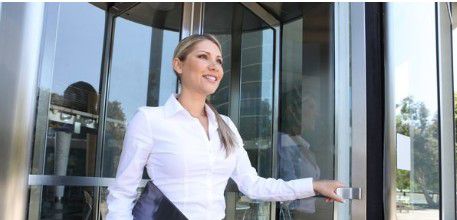2007年8月21日 谁说瘾君子没有理性
|
我觉得现在是时候分享一个秘密了。当我一周之前去度假时,我正在抵抗很深的咖啡瘾。我觉得现在我能够承认这件事了,因为在休假期间,我能够遵守突然戒除法、战胜咖啡瘾,然后清白地面对世界。 I feel that it is time to share a secret. When I left on my holiday just over a week ago, I was fighting a battle with a deep-rooted addiction. I feel able to admit this, since over the course of my holiday I was able to go through cold turkey, conquer the addiction, and face the world clean. It’s decaffeinated coffee for me from now on. Addiction – even to something as benign as filter coffee - is an unlikely topic for an economist to tackle, because most economic theory is predicated on rational behaviour, and addiction seems to be quintessentially irrational. The logical response appeared in 1988. A Theory of Rational Addiction was published by Kevin M. Murphy and Nobel laureate Gary Becker, and has defined economists’ approaches to addiction ever since. The theory is easy to state: it is that addicts choose their poison despite knowing that it is habit-forming and dangerous, and they do so because they expect the highs to outweigh the lows. Even other economists are sceptical. “They don’t know what they’re talking about,” opined Thomas Schelling when I met him shortly after he, too, was awarded the Nobel prize in economics. Schelling had spent years trying to kick his tobacco addiction. Yet perhaps the rational addiction approach is not quite as absurd as it seems. Some habits are rational to acquire. Dating my girlfriend was habit-forming enough for me to ask her to be my wife. So far I have no regrets. Rational addicts should behave in certain ways. They should, for instance, respond not just to current price increases but to expected future price hikes. If heroin is likely to get more expensive, rational addicts should consider trying to quit before that happens. Addicts may even be more sensitive to lasting price-shifts than non-addicts. And since addiction is self-reinforcing, when the rational addict wants to quit, cold turkey is the efficient way to do it. Economists have found some evidence to support these ideas: Pamela Mobilia finds that betting at racetracks falls in anticipation of increases in bookies’ takings, which would make the gambling habit more costly; Nilss Olekalns and Peter Bardsley find that coffee addicts show similar foresight; Philip Cook and George Tauchen found that when some US counties raised taxes on alcohol, liver cirrhosis fell more sharply than overall consumption, suggesting that it was the alcoholics who cut back most. My own addiction was perfectly rational: I’m working on a new book, and as deadlines loomed I drank more and more coffee, even though I was becoming dependent on the caffeine. Manuscript submitted, I went cold turkey on holiday, knowing that the headache and sluggishness of mind would be both less painful and less important while wandering around the Welsh coast. That is only caffeine, of course. But even heroin users can addict themselves and then quit as circumstances dictate. The psychiatrist Lee Robins found that almost half of US soldiers used heroin or opium while in Vietnam, but rather fewer were actually addicted and almost 90 per cent of those kicked the habit upon returning to the US. I have absolutely no desire to try heroin myself, but it seems that both the decision to start and the decision to try to quit were, like my coffee habit, rational responses to circumstances. I can’t help noting that a large number of British cabinet ministers decided to smoke cannabis at university and then quit later. Whisper it softly, but perhaps not only addicts are rational, but politicians, too |








